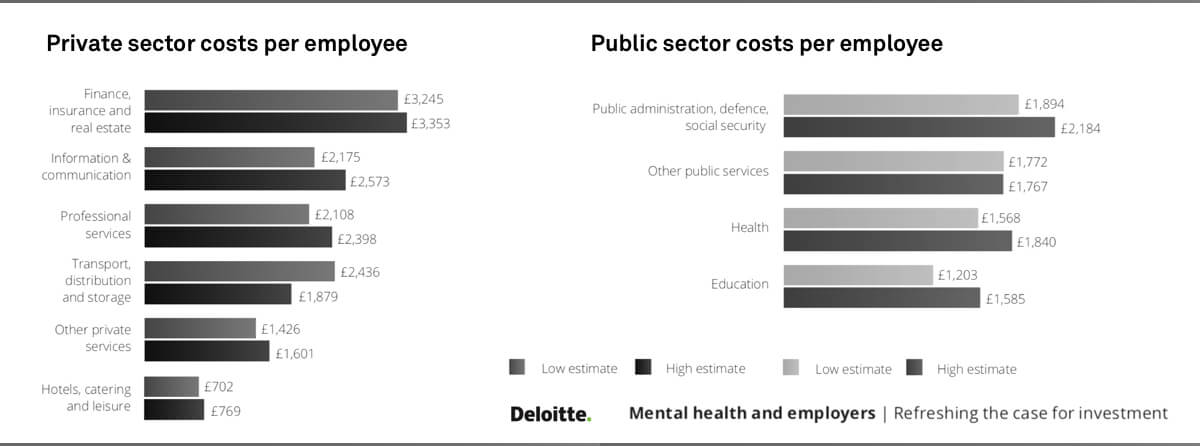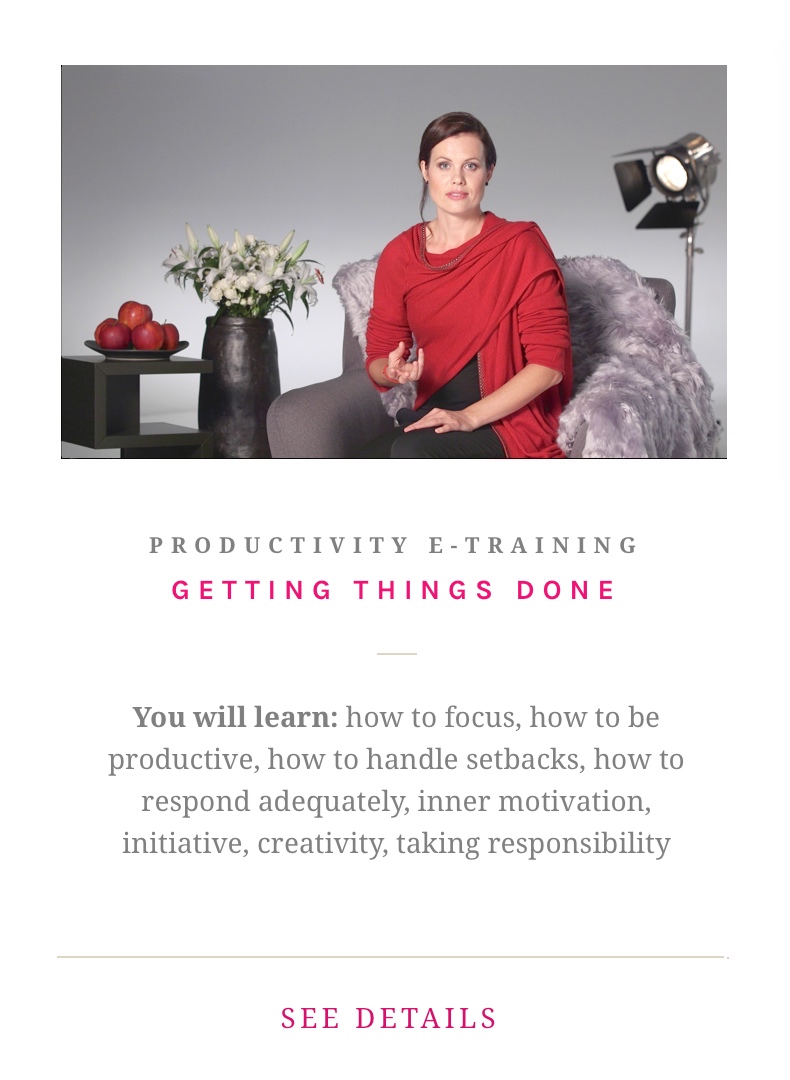How to stop procrastination and improve mental fitness at work?
Modern work uses mental skills and is based on excellent self-leadership. Focus, creativity and insights of your people will turn ideas into solutions.
At work, we see procrastination causing delays every day. People postpone salient tasks such as making a call, sending an e-mail, avoiding appointments, submitting a report, broaching a stressful or difficult issue with a colleague, etc.
Procrastination, as the term, describes the action of unnecessarily and voluntarily delaying or postponing something, often despite knowing that there will be later negative consequences for doing so.
Although procrastination can sometimes be considered a wise response to some unethical or uncertain demands that could demonstrate risk for negative outcomes or require waiting for new information to arrive, it isn't mostly so. Mostly procrastination comes down to a lack of mental sharpness and mental fitness.
Where does procrastination originate?
People who are unwell procrastinate.
Such a hindering effect on one's productivity is associated with a lack of initiative, worry, anxiousness, low self-esteem, guilt, stress and burnout. However, mental health issues like depression and anxiety also subconsciously drive procrastination. Our inner problems don't allow us to make decisions
The fact is, when your people lack sharp minds and mental wellbeing, you lose revenue. Your annual loss per employee is illustrated in the following graph.

Is procrastination meaning for employers more than a waste of paid time and business credibility? In this context, procrastination synonym is a business loss and waste of potential.
As Abraham Lincoln once put in his famous procrastination quote, "You cannot escape the responsibility of tomorrow by evading it today."
Mental wellbeing and mental sharpness reduce procrastination
Mental wellness is the origin of successful human and business interaction.
A lack of such inner wellness makes people subconsciously procrastinate. Procrastination meaning here a subconscious way to get off the hook.
As most individuals run on 'autopilot', such subconscious delay brings them an opportunity to avoid something they fear or are unfamiliar with. It isn't someone's actual intent to become procrastinated.
What does procrastinate mean here is that people aren't aware of where their awareness is or what is actually going on in their inner domain. Their discomfort and subconsciousness direct them away from pain, equalling the need to face challenges. Procrastinate meaning, in this context, a total lack of intrapersonal education.
What you don't know is scary
What the subconscious option to procrastinate define here is an escape from uncertainty.
Feedback from postponing something here is less painful than facing an unknown object or situation. A subconscious choice to procrastinate meaning here a lack of both inner and external safety.
The famous procrastination quote by Charles Dickens states, “Procrastination is the thief of time, collar him.” You can address it by providing intrapersonal education that allows people to take more initiative.
You and your team should learn practical intrapersonal skills that will help you to get things done! Also if you are stressed or nearing burnout and now it is time to learn how to prevent the downward spiral. Or if want to improve your mental wellness, just start with it!
All Wellness Orbit online trainings improve your mental sharpness and mental fitness and allow a tenfold return on your investment.
What procrastination might be telling you?
While procrastination isn't great for an employer, it might be trying to tell you as a person something.
When you find yourself stuck at work ask yourself, ask yourself 7 questions to support end procrastinating:
-
Am I too tired from previous work? Maybe I need a break before starting a new task? If the answer is yes, take a short break or (ask permission to) leave early and take an evening for restoring yourself.
-
Am I stressed and nearing burnout? If you feel more than a bit tired, take a free stress test now!
-
Am I feeling anxious or afraid? Sit comfortably, follow your breathing and when you calm down. Next, observe what causes this anxiousness or fear. When you become aware of it, you can figure out how to deal with it. If needed, ask for help or seek counseling.
-
Is the task too challenging? Maybe I need to learn something new to perform it or seek help from others. If yes, from whom? Seek information or help!
-
Is the task given to me boring? If it is, then take time to discover how this boring task fits into the big picture. If it is boring and needs to be done, start doing it. If you don't see a need for such a task, speak up about why it isn't needed. Often things are decided on 'autopilot' mode; aware views and open discussions may change things!
-
Maybe that task isn't needed and I was too scared to admit it when I took it on? If it isn't needed, speak up! No serious business wants to throw away the time of their staff, it is a waste of hard-earned salary funds. Also, if it is routine work, maybe it can be automated or performed more efficiently.
Unless procrastination is a warning sign, it isn't useful. If it is a warning sign, listen to it and take a bit different action.
Productive action that allows changing the situation. Even taking a moment to rest or relax can be such an action, as while you enjoy a pause, your mind relaxes and becomes fit to deal with tougher decisions.
Let's demystify decisions and point out the need for psychological safety
Everything in life is a decision. Read that again!
Let's bring some examples here:
- To start something = decision.
- To continue with something = decision.
- To work on something = decision.
- To give up something = decision.
- To procrastinate and do nothing = decision!
Every step you take or don't take is a decision. It truly is that simple!
If you look at procrastination as your decision, then procrastination doesn't free you from deciding. Instead, it shifts your initiative and responsibility to a subconscious level and leaves you vulnerable to experiencing unknown setbacks later on. Such a decision is not wise decision.
We all need a psychologically safe workplace, there should be no compromises here. However, psychological safety without intrapersonal skills will not solve procrastination problems.

All problems get solved by people who take action
Solving any challenge demands action. In this context, even taking a break or resting is meaningful and progressive action. Browsing randomly on social media or talking idly with your colleagues is also an action. However, such action prolongs procrastination.
To remove procrastination you need to audit your unique situation.
Part of this should include a question: How good are your intrapersonal skills support your individual mental wellness?
And if the answer is 'good', then take action that takes you forward. If the answer is 'bad', start building a team with good intrapersonal skills and you'll get more meaningful work done!
In case you do not know how to get things done and take action in every situation, take yourself and your team to the online training 'Getting Things Done', it will reveal some successful intrapersonal skills.
CONCLUSION
Only people who are mentally well and sharp get things done.
Workplace-wide mental wellness training is an excellent investment with tenfold ROI that improves initiative, reduces worry and anxiousness, improves self-esteem and employee engagement.
The proactive approach reduces stress and prevents burnout and allows people to become aware of their actual inner potential to stay well and work well.
People who are well are the engaged and productive employees that you desire. Those people take your team forward.
When your people have sharp minds and excellent mental well-being, your revenue improves and people solve challenges more successfully. You'll simply get more done with the same team!

This blog post is written by Kaur Lass






